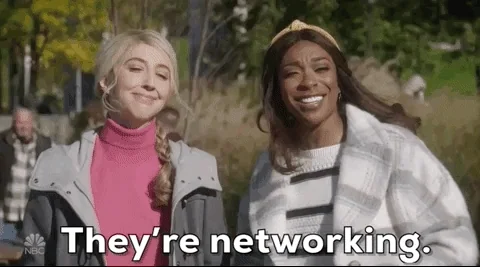Debunking Common Myths about Running for Office
Ever thought politics was only for those born wearing a power suit and a shiny smile? Spoiler alert: it’s not!
Many women find themselves held back by myths that suggest they aren’t cut out for a run for office. Elected leadership might seem daunting, but it’s is not reserved for a chosen few. Whether you’re a teacher, a doctor, a stay-at-home mom, or anything in between, your perspective is valuable. Let’s shatter these misconceptions and reveal the truth that will inspire you to take that first step towards serving in an elected position!
Myth: I need to be an expert in politics to run for office.

Reality:
You don’t need a background in political science or years of governmental experience to make a difference. In fact, many of our female leaders started from entirely unrelated fields. For example, Maine Rep. Genevieve McDonald from Maine began her career as a lobster boat captain; she then brought her deep understanding of maritime issues and community needs to the political arena. There’s also Rep. Norma Torres (California), who started as a 911 dispatcher and now advocates for emergency response improvements and public safety. And who can forget New York Rep. Alexandria Ocasio-Cortez, who went from bartending and waitressing to shaking up Congress with her fresh perspectives and advocacy for working-class Americans.
These women show that expertise in politics is not a prerequisite for running for office. What matters more is your passion for your community, your dedication to making a positive change, and your openness to learning along the way. If you’ve ever thought your background in accounting, HR, finance, or any other field couldn’t translate into political success, think again–your unique experiences are exactly what the political landscape needs.
Myth: I need a lot of connections to run for office.

Reality:
Building a network takes time, but it’s not a requirement to start. Community involvement, volunteering, and leveraging social media can help you build the necessary connections. Starting small can lead to big results, and sometimes, the most meaningful connections come from the simplest actions.
Consider Dr. Audrey Young, who ran for the Texas State Board of Education. After participating in a local candidate forum, she wrote a thank-you note to the local paper. That small gesture resonated with a voter who recognized her at the polls and shared that the note influenced their vote. Similarly, Councilwoman Christine Houk of Grove City, Ohio, spent years attending city council meetings, quietly learning and connecting with community members. When she decided to run for office, those relationships proved invaluable. Her active involvement and the strong connections she built over time helped her campaign gain traction and support.
These examples show that you don’t need an extensive network to start your political journey. Your genuine engagement and commitment to your community will open the doors to meaningful relationships and support.
Myth: I can’t run for office because I’m too young/too old.

Reality:
There is no perfect age to run for office. Young candidates bring fresh perspectives, while older candidates bring valuable experience. Voters appreciate and value both, recognizing the unique contributions each can offer.
It is true that young women face challenges being taken seriously because of their age, as Grace Garner, a Palm Springs City Councilwoman, shared: “As a young woman especially, I was often told I didn’t have enough experience. I had to do extra work to make sure I was seen as professional and independent.” However, she and many others, such as Saira Blair—who was elected to the West Virginia House of Delegates at just 18—show that that youth didn’t deter them from making a significant impact.
On the other hand, despite having a notable career as a professor and consumer advocate, Elizabeth Warren only entered the political arena at age 63 when she was elected to the US Senate. Her experience and expertise earned her respect and admiration, reminding us that it’s never too late to start a political career.
Myth: My family and personal life will suffer if I run for office.

Reality:
While running for office does require sacrifices, many politicians successfully balance their careers with family life. Rochelle Garza—a Commissioner on the United States Commission on Civil Rights and president of the Texas Civil Rights Project—ran for office while nursing her newborn. She was able to travel across Texas with the help of a supportive network of family and team members. Her campaign was a family affair, showing voters that it’s possible to juggle family responsibilities and political aspirations.
Maine Rep. Genevieve McDonald, who ran for office while expecting twins, initially thought about withdrawing from her race. However, she continued and found that involving her family in the campaign created some of her best memories. McDonald emphasized the importance of prioritizing family, involving her husband in decision-making, and having a strong support network, including a supportive spouse and reliable childcare.
These cases show that, while requiring an extra level of coordination, balancing a political career and family life is achievable. With clear communication, set boundaries, and a strong support system, you can serve in office without sacrificing your personal and family well-being.
Myth: I need to wait until the perfect time to run for office.

Reality:
There is rarely a perfect time to do anything significant. Waiting for the “perfect” moment can lead to endless delays. Taking the plunge when you feel a strong calling and are reasonably prepared is often the best approach. Don’t be discouraged and think it’s too late for you—it’s never too late!
Judge Terri Jamison of the Franklin County Court of Common Pleas in Ohio decided to run for office late in the game, missing the deadline to run in a primary. Still determined, she got on the ballot as an Independent and succeeded in her campaign. Her story is a testament to the fact that seizing the moment, even when it seems less than ideal, can lead to success.
If you’re feeling worried about the challenges surrounding running for office, know that you’re not alone! At She Should Run, we’re here to support and guide you every step of the way. For more insights and practical advice, check out our 26 Common Barriers to Running for Office, which addresses the most common barriers we hear to running for office and offers strategies to overcome them. Additionally, our Building a Better Community course is designed to equip you with the knowledge and skills needed to make a positive impact. Your voice matters, and we believe in your potential to lead!
